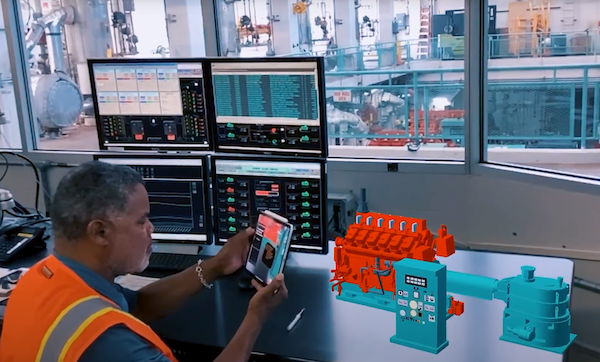How augmented reality can advance nuclear operations
Deliver real-time access to authored content
Leverage the power of 5G
Nuclear facilities are considering adoption of 5G, driven by the edge-computing capabilities, support for remote operations and improved security and reliability. With 5G, the capabilities and value of AR applications increase, as 5G makes data more portable and AR systems faster, more secure and more resilient.
Maximising expertise within organisations is also a supported by AR and optimised by 5G. AR platforms can capture and disseminate knowledge from experts and distribute it to other staff, regardless of location, making employees more productive more quickly, with reduced classroom time.
The integration of AR with IIoT technologies will be greatly enhanced by 5G and the incorporation of sensors into legacy equipment. It will provide transparent information on demand, right at the location of frontline workers, enabling them to directly and securely access critical data. 5G also reduces latency, increases throughput and enables the deployment and connection of more sensors, providing more data for machine learning to help inform maintenance tasks.
Meanwhile advances in measures for device authentication, encryption of user traffic between devices and the network, and additional security protocols provide a new level of security required by utilities.
See the full story here: https://www.neimagazine.com/features/featurehow-augmented-reality-can-advance-nuclear-operations-9104303/

Pages
- About Philip Lelyveld
- Mark and Addie Lelyveld Biographies
- Presentations and articles
- Tufts Alumni Bio